“I went to the Lebanese General Security Directorate several times hoping to retrieve my passport, which was retained when I filed for a Lebanese residence permit. The authorities kept delaying and offered me the option to accept a deportation card outside the country in exchange for the passport.”
Amer, a 22-year-old Syrian student from Aleppo, is studying at the University of Lebanon. He came to Beirut in early 2015 to study, as the conditions in Syria made it impossible to continue his studies there. Although Amer has met all the requirements, he has not been granted a Lebanese residence permit at the time of preparing this report.
What is puzzling is that the young man (who declined to reveal his full name for fear of being harassed) has had his passport retained by the General Security Directorate, which means that, in addition to his unstable legal status in Lebanon, Amer is unable to leave the country in order to visit his family in Turkey. The young man fears being arrested whenever he encounters the Lebanese police or army and security checkpoints, or being obliged to pay a fine, which is considered a great burden for any Syrian student in a similar situation.
Amer is only one of thousands of Syrians who have not been granted residency in Lebanon. The passports of some of them have been held by the security services without explanation and they have been threatened with deportation at any moment. But where will they go?
Through this in-depth investigation, Enab Baladi seeks to shed light on Amer’s difficult situation and other similar cases, and to reveal the reasons behind the Lebanese security apparatuses’ measures in dealing with Syrians. The report also looks at possible ways for settling the legal status of Syrian immigrants.
In order to obtain accurate information on this issue, Enab Baladi interviewed many categories of Syrians living in Lebanon who did not obtain residency, despite the fact that they met the required conditions. Enab Baladi also consulted Lebanese activists and politicians who are interested in the issue of Syrian immigrants and have direct contact with similar cases.
No residence permit, passport or military record
Amer spoke to Enab Baladi about the “hardships” of getting a residence permit in Lebanon and “the abuse by authorities” towards these cases, as if they were following a policy of unjustified and “systematic disregard” in order to make immigrants leave.
“I do not know why they are denying me the right to stay, even though I am a student and all my papers are legal”, says the young man. Amer believes that having his passport retained has caused him many problems. Throughout the last two years, he has been stopped by the police for not having a residence permit or a passport and forced to pay a fine each time.
Amer added, “Ironically, they have held my passport for almost two years and now it has expired, and I am unable to even renew it. I cannot register at the consulate in order to proceed with the process to get a military record, which requires presenting a passport in the first place.”
After examining Amer’s case and similar cases, Enab Baladi consulted some lawyers and human rights activists to explain the legal status of Syrian immigrants in Lebanon. We also tried to speak to the relevant authorities but we did not receive a response.
The Lebanese lawyer and jurist Diala Chehade, explained to Enab Baladi in detail the situation of Syrians and the requirements of the residence permit.
Chehade commented that regarding residency for Syrians in Lebanon, after January 2015, the General Security Directorate attached to the Ministry of Interior imposed new conditions that are difficult for most Syrians to fulfill. It is worth mentioning that the General Security Directorate is responsible and has the powers to follow up residency issues relating to Syrians.
According to Chehade, the difficulty of obtaining a residence permit in Lebanon is due to two main reasons. The first concerns the financial aspect of the residency fees, which are about 200 dollars per year for each family member aged more than 15 years old. The second relates to the conditions, which were flexible at first for those who had a registration form from the United Nations, which was considered as their guarantor under the so-called “sponsorship system”. Alternatively, an individual sponsor could also “sponsor” a Syrian immigrant. However, the General Security Directorate later began to require Syrians to be sponsored by an employer, which not all Syrians can secure.
If the Investigations Division of the General Security Directorate discovers that the sponsor is fictitious, there is a risk that the person will be deported. Chehade added, “This will not happen mainly because refugees are not deported from Lebanon. However, this situation would make a Syrian feel psychologically unstable and lacking security as he or she has no residence permit that allows him or her to travel at night or go through checkpoints without the risk of arrest and detention.”
According to the cases observed by Enab Baladi, this instability has pushed some refugees to demand their passports, even if this means having to leave the country after signing a compulsory deportation paper in exchange for the passport.
Chehade pointed to the decrease in the number of arrests of those who have violated their legal period of residency. The reason behind the decrease is that illegal residents are not brought before courts and the General Security Directorate is left to decide their cases, except for cases in the South.
Enab Baladi was unable to obtain official figures from the authorities, which consider that all Syrians on Lebanese territory have legal residency. Enab Baladi tried to contact the Office of the United Nations High Commissioner for Refugees to get some statistics in this regard but it did not receive any response.
Chehade asserted that “there are no exact figures”, noting that on one occasion she had asked the General Security Directorate for figures and was told that all the Syrians living in Lebanon have legal residency. Chehade added that this was “strange because most of my clients have either not received a residence permit or did not meet the required conditions”.
According to official figures, the number of Syrians living in Lebanon is more than 1.5 million. Chehade says that “half of them or even a million do not have residency. To avoid giving inaccurate figures, we can say that hundreds of thousands of them do not have residency in Lebanon”.
Amer cannot get legal residency nor clarify his legal status, and he is subjected to permanent restrictions. This has led him to ask whether there is a systematic policy of deterring Syrian immigrants. What are the legal justifications for it? And if the government wants to deport Syrians, why are they retaining their passports?
| Jordan
657.000 |
Lebanon
1.011.366 |
Turkey
2.967.149 |
| North Africa
29.275 |
Egypt
120.154 |
Iraq
235.526 |
What are the conditions for legal residence for Syrians in Lebanon?
Sponsorship by an employer
To obtain an annual residence permit in Lebanon, a Syrian immigrant must provide “sponsorship” from an employer who has a company, factory, plant, shop, agricultural land, a house with a garden or anything that proves the latter’s ability to take on a worker. In addition, the employer must carry out all legal procedures and pledge that he is the sponsor for the Syrian immigrant.
A certified lease
A Syrian who has a lease certified by the municipality and the security bureau in his local area can obtain a six-month renewable residency. However, the problem is that not all Lebanese security bureaus follow the generalized instructions and each acts separately.
Tourism
For those who want to come as tourists, the Lebanese government requires a hotel reservation, a cash deposit of at least 1,000 or 2,000 US dollars and a valid trade union card in Syria or an invitation from a family member living in Lebanon who must have a lease certified by their municipality.
Syrians coming from the airport can present a tourist visa or work visa granted by a country other than Lebanon, which allows them to enter the country and remain for a period not exceeding one month.
Students
Student visas are one of the most complicated types of residence permits in Lebanon. The General Security Directorate takes a long time to verify whether the student wants to obtain a residence permit only for the purpose of living in the country or to genuinely undertake studies. Thus, the student must provide proof that he or she is actually studying by providing a record of the grades issued by the university.
“Selective” measures against refugees coming from areas under Hezbollah control
Nabil al-Halabi, a Lebanese lawyer and director of the Lebanese Institute for Democracy and Human Rights (LIFE), told Enab Baladi that “arbitrary” measures concerning the legal status of Syrian immigrants are “taken by the Lebanese security apparatus against a certain subset of Syrian refugees coming from areas in Syria that are controlled by Hezbollah, which are not applied to others”.
Hezbollah’s forces are mainly located to the west of Damascus in the areas around Zabadani and Madaya extending to Qalamun and al-Qusayr, its main stronghold in the western countryside of Homs on the Lebanese border. These areas are considered an extension of the political movement’s control over the Lebanese border in Beqaa.
As a close observer of Syrian affairs and refugee issues in Lebanon, al-Halabi says that, despite the fact that Syrians refugees do fulfill the conditions of residency in Lebanon, the Lebanese General Security Directorate obstructs the process of granting them residence permits “selectively”. The Directorate can go even further and forcibly deport them, according to al-Halabi.
Al-Halabi criticized the Directorate, saying, “They give them an order to leave, but leave to where? It is as if they are exerting pressure on Syrians to force them to return to Syria in order to use them in the ongoing negotiations over refugee repatriation. These initiatives are concerned with the areas that are being pressurized by various political actors to enter into negotiations with the Syrian regime.”
According to al-Halabi, there is no policy of “discouraging Syrians to stay in Lebanon”. However, he confirms that the Lebanese authorities are pursuing a “selective policy”, which does not include all Syrians, but only “those coming from the territories that are involved in the negotiations over refugee repatriation and reconciliation.”
Syrians in Lebanon: are they “hostages”?
On the other hand, al-Halabi considers the Lebanese government’s policy towards Syrians in Lebanon to be based on a strategy of using them as “hostages”. He said, “Syrians are like hostages inside Lebanese territory. These “arbitrary” measures also apply to Syrians who have been allowed to join their families or granted residency in European countries or Canada.”
He also pointed to the “intentional” obstruction by the Lebanese security apparatus to prevent Syrians from traveling outside Lebanon by “retaining their passports without justification”.
Al-Halabi also added that two years ago, “the arbitrary measures by the security apparatus” provoked the Canadian Foreign Ministry to denounce the actions of the Lebanese government, in banning Syrian refugees from leaving the country. According to the lawyer, this strategy “goes on and on”.
Al-Halabi also cited the example of the Syrian media activist Ali Ibrahim who was coming from Zabadani, an area besieged by Hezbollah militias. Ibrahim had his passport retained by the authorities, which al-Halabi describes as “typical” of the “arbitrary” behavior of the Lebanese security forces towards Syrians.
He explained how the security apparatus retained Ibrahim’s passport and banned him from traveling without any legal justification. The ban came after the journalist had been granted permission to enter Norway. The situation continued until Norwegian authorities and lawyers intervened to retrieve his passport.
Why do the Lebanese authorities want to detain Syrians in Lebanon, despite constant complaints of their growing numbers, which have reached nearly half of the population? What interest do they have in doing so?
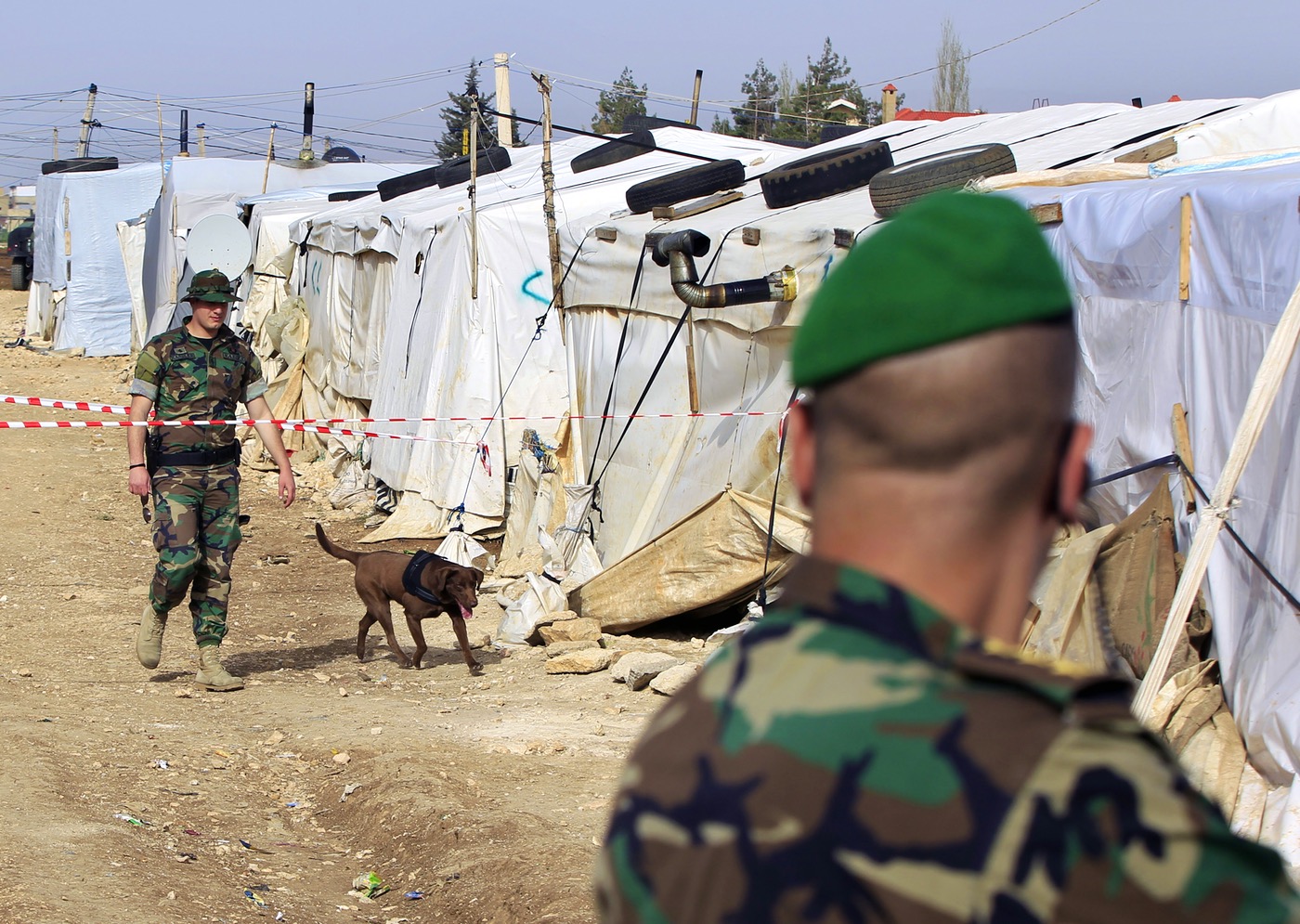
Lebanese soldiers in a refugee camp in the Syrian town of al-Dalhamiyya in the Beqaa before a visit by a senior official (AP)
“Forcibly” returned under the cover of “peace” initiatives
Al-Halabi believes that the Lebanese security apparatus is exerting pressure on Syrians to accept to negotiate with the Syrian regime and forcibly return to Syria, which only serves the the interests of the regime.
The objective behind this is to pressure those coming from areas controlled by Hezbollah, which are subject to negotiations and reconciliation with the regime and Hezbollah. If Syrian refugees in Lebanon go abroad, they will oppose the negotiations but if they remain in Lebanon in “miserable” conditions, they will eventually accept the negotiations and accept a “forced” return back into the regime’s embrace.
Al-Halabi stressed that the Syrian regime is “embarrassed” by the presence of refugees outside Syria. “Major General Turkmani was sent to work on the repatriation of refugees when there were still relations with Turkey because the regime knows that the presence of Syrian refugees abroad is a source of pressure on the regime in terms of the political process,” according to al-Halabi.
Consequently, Syrian refugees in Lebanon will accept any negotiations, regardless of the low ceiling involved, to escape the “violations they face in Lebanon.”
Al-Halabi believes that the Syrian regime “does not want the presence of an opposition outside Syria so it will not be used against it abroad.” He believes that if the security apparatus exerts pressure on Syrians and makes their legal situation “tenuous”, it will lead them to accept negotiations with the regime and eventually return to Syria.
Al-Halabi’s statements are in line with a meeting held in the Lebanese capital on February 9 between Syrian opposition and regime loyalists to discuss a “peace initiative” aimed at returning a thousand Syrian refugee families in Lebanon to Syria with a Russian guarantee as an “experimental step”.
The meeting was held at the Riviera Hotel amid tight security and was attended by parliamentary and academic figures under the slogan “A united homeland for all Syrians”.
The Al-Hayat newspaper in London reported that the meeting was “the outcome of channels opened by Hezbollah to the Syrian opposition in anticipation of the next phase and the possibility of regional-international changes with regards to Syria.”
Enab Baladi obtained information from the Saraya Ahl al-Sham faction, which is based in West Qalamoun north of Damascus, regarding negotiations with Hezbollah to repatriate refugees but the negotiations failed after the demands were sent to Hezbollah leaders.
Reasons for holding a passport in Lebanon
According to information obtained from lawyers who were interviewed by Enab Baladi, and according to the cases monitored by Enab Baladi, the reasons for holding passport are the following:
Suspicions that the passport is fake or that the foreigner (Syrian) committed an offense. The public security holds the passport until the reason of the arrest would be revealed, and the public security has the full right to do so. A foreigner does not have the right to take back his identity papers and his passport until the completion of investigations, and this in case they were arrested for a certain reason. However, the whole process can take up to two months or more.
Holding the passport during applying for residency: there are cases which can be legally interpreted, which are: the total or partial forgery of the passport, falsification of the entry card to Lebanon. In this case, the public security holds the passport and the person can be arrested until the investigation is completed. People arrested can also be sent to the court.
Some other cases are basically due to a mismanagement. As an example, Diala Chehade refereed to her Syrian client, who holds a Swedish residence permit. The latter’s case was procrastinated and he was asked to start the procedure for getting back his passport. Despite the role of the lawyer, the authorities did not provide this Syrian with details. This caused the whole case to be more complex.
Prolonged detention of passports may sometimes be attributed to the pressure of the public security’s work in Lebanon, mainly due to the powers it has. In fact, the public security is responsible for the residence of foreigners, including Syrians, whose numbers have increased in recent years. Therefore, the same services cannot be same as quickly as required. This denies Syrians from getting residency in a European country, as well as from a job opportunity or a visa. They no longer can renew their passports as they do not have a valid residency and their passports are held.
Syrian-Lebanese coordination “to reduce the number of fugitives”
Chehade believes that it cannot be assumed that pressure is being exerted by the Syrian regime and that it is not possible to know what is “being planned in the corridors of Syrian-Lebanese political decision-making”. However, she says that it cannot be discounted, as is the case in all countries suffering from armed conflict. “Governments seek to reduce the numbers of those escaping abroad in order to make the international community believe that the security situation is stable and that everything is fine.”
Despite this, Chehade does not rule out coordination between the Syrian regime and the Lebanese government. “No matter how naïve we may be, the relations between the Syrian regime and the Lebanese government are strong, and we wish that it (the Lebanese government) would refrain from intervening in this matter.”
Al-Halabi also believes that the policy adopted by the security apparatus goes against all the Lebanese government’s actions and its calls on the international community to shoulder the burden of looking after Syrian refugees.
Al-Halabi added, “It is true that official policy in Lebanon is for the government to distance itself from interfering in the matter but the security services are coordinating fully with the Syrian regime. The latter, as well as Lebanon’s Military Court, consider that what is happening in Syria is a series of terrorist attacks targeting a legitimate government.” He pointed out that the security services “do not recognize the existence of the opposition or the Free Army or any others, and believe that they should be imprisoned, prosecuted and extradited to Syria.”
In addition, security services are launching public campaigns on a nearly daily basis targeting refugee camps. In fact, in its official statements, the General Security Directorate says that it has arrested illegal refugees or refugees who do not possess identity papers.
“Deterrence” not expulsion
who do not possess identity papersIn light of the contradictions in the treatment of Syrians in Lebanon, Enab Baladi had a series of specific questions regarding whether this policy is one of “discouragement”, using the term that is widespread locally.
Diala Chehade confirmed the existence of a policy of “deterrence” towards Syrians in Lebanon. She said, “It is not new, it started with the beginning of 2015 with the generalized application of residency laws”.
Chehade believes that the policy of “deterrence” permeates all actions taken by the Lebanese government towards Syrians, which is not limited to retaining their passports.
She pointed out that all the decisions taken regarding Syrians’ residency, starting with the “sponsor system”, the “arbitrary” deportation decisions and “unusual conditions” indicate this.
She noted that there is a “contradiction” in the government’s dealings. It requires a “sponsor as an employer while demanding that refugees not work.”
As an example of this “contradiction,” Chehade said, “There is a Syrian who has about $200,000 in his bank account. The government asks him to promise not to work or else he will be deported. The Ministry of Labor does not grant him permission and the security services ask him to provide a guarantee from his employer.”
She added, “The definitive evidence of deterrence is the existence of deportation decisions regarding Syrians but they are not carried out, as the Lebanese government must maintain its reputation in front of the international and humanitarian community, so it cannot deport refugees to a country where there is killing and torture.”
What is the government doing in this situation? Chehade herself poses the question and answers, “It issues impossible decisions and harasses any Syrian who does not have residency at security checkpoints and detains him each time because he is illegal until he leaves the country by himself or does not leave his home, which is impossible because he is obliged to go out to continue his life and work, or how else should he live?”.
Syrians have raised consumption by 50% in Lebanon
Chehade believes that the Lebanese government’s policy of “dissuasion” is “unwise”. It is “wrong economically, regardless of the humanitarian, legal and moral aspects. Economic figures show that there is an almost 50% increase in consumption.”
Chehade added that the International Bank had written an unpublished report confirming that the Syrian presence in Lebanon “created a balance in the economy thanks to increased consumption, whether through goods sent to support the relief operation in Lebanon or through what is sent by expatriates to their families and relatives in Lebanon”.
Economically, the benefits the Lebanese government gains from the Syrian presence is not limited to consumption. There is also assistance to improve the level of infrastructure in the areas that frequently receive Syrian refugees in Lebanon.
This is what Prime Minister Saad Hariri said when he called for Lebanon to become an important launching platform for reconstruction operations in Syria. However, this requires funding for Lebanon’s infrastructure as a “major investment program”.
Hariri’s statements were made on March 20 during a meeting of the Higher Steering Committee to Address the Syrian Refugee Crisis, which was formed following the London conference last year. It includes Lebanon, representatives of the countries participating in the conference and the directors of the UN and World Bank.
Last year, at the London conference, Lebanon asked for $11 billion from donor countries that participated in the meeting as part of a four-pronged plan that includes support for the Lebanese economy, as well as support for Syrian refugees.
Hariri hopes to secure guarantees for additional aid to Lebanon at the Brussels conference on April 5, calling on the international community “to mobilize support for our vital program in the form of aid and soft loans, in addition to guaranteeing humanitarian assistance beyond 2017.”
Are Syrians refugees or immigrants?
The Lebanese government is treating Syrians with “double standards” according to the lawyer Diala Chehade. It considers them refugees during its negotiations with UNHCR in accordance with the protocol signed with the United Nations, which makes the High Commissioner their sponsor and facilitates relief operations inside Lebanon.
On the other hand, the government deals with Syrians as economic migrants, in terms of the sponsor system and the annual fees they are required to pay.
Chehade blamed Lebanese mismanagement for these “double standards” saying, “In my view, there is a real problem at the level of administration and politics in Lebanon that must be resolved. This would be better for Syrians who come to Lebanon not for work but for protection, as well as for Lebanon as one of four countries that participated in the drafting of the Universal Declaration on the Rights of Refugees in 1948.”
She continued, “It is sad that Lebanon, which contributed to the drafting of the Universal Declaration, is now treating refugees fleeing from war as if they came from a normal country that has no problems and can travel whenever they want.”
if you think the article contain wrong information or you have additional details Send Correction
النسخة العربية من المقال
-
Follow us :











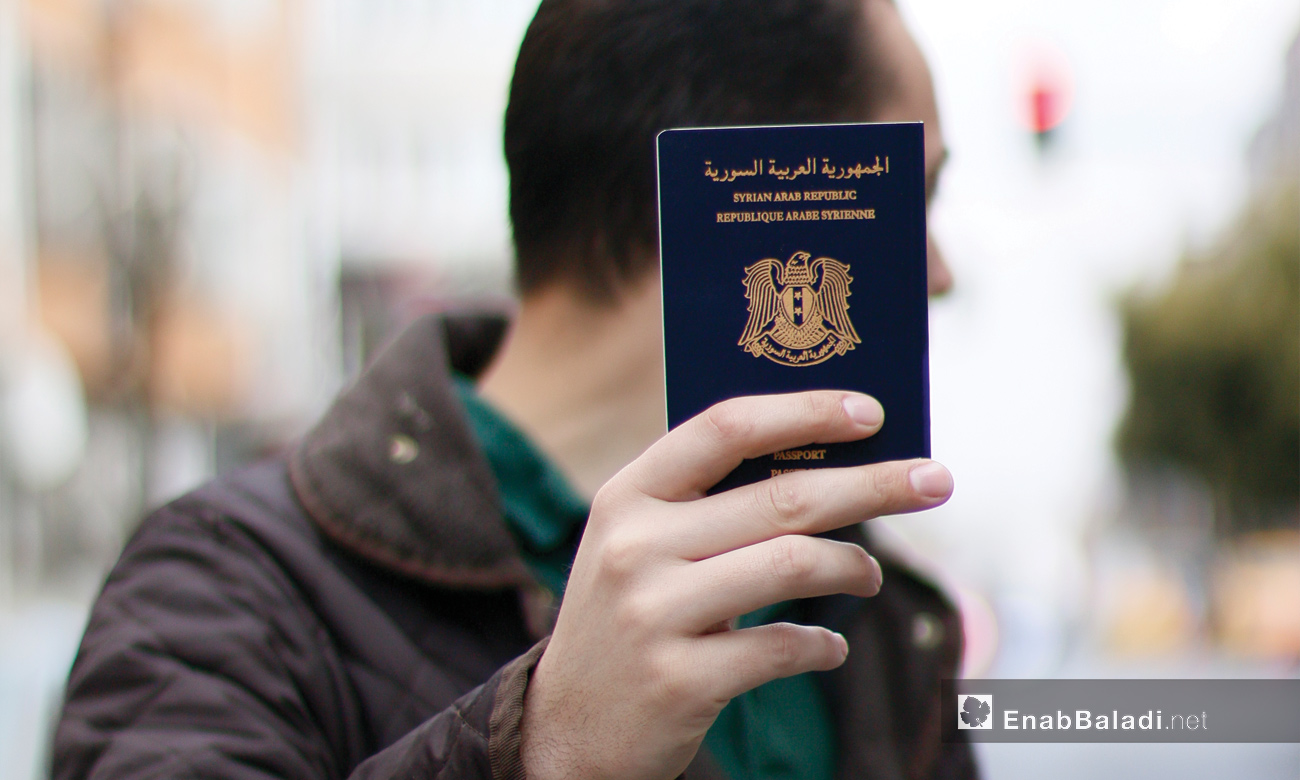






 A
A
A
A
A
A

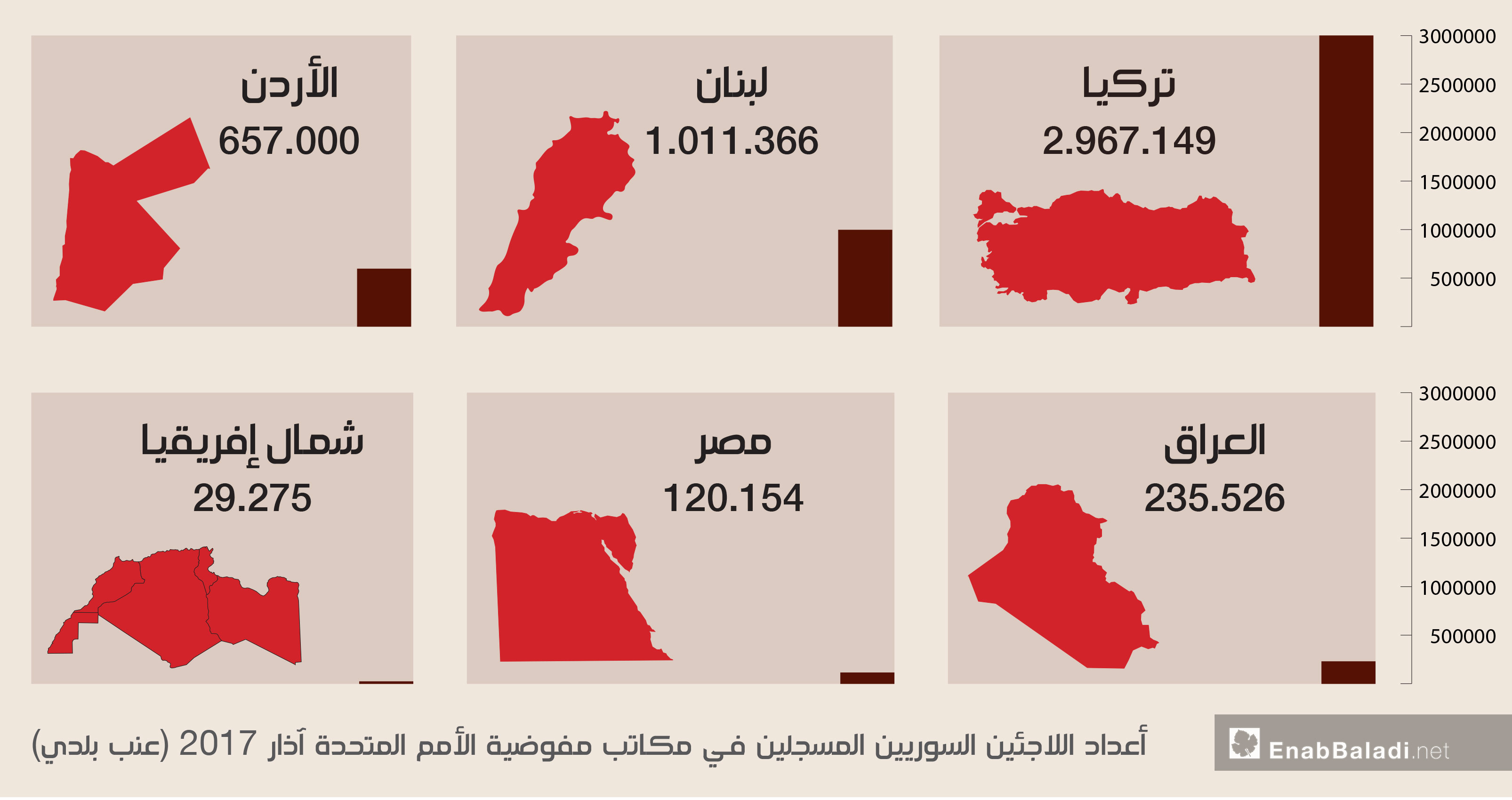
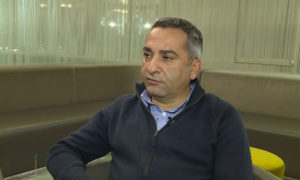
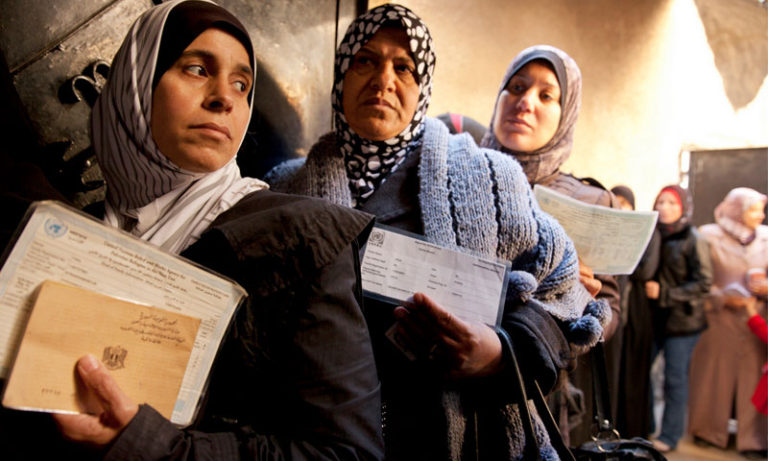


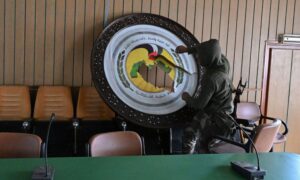
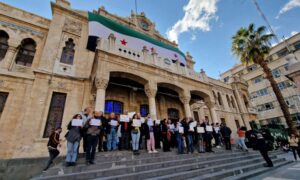
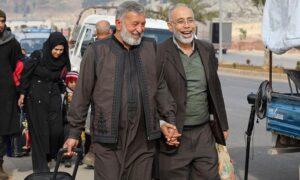


 More In-Depth
More In-Depth